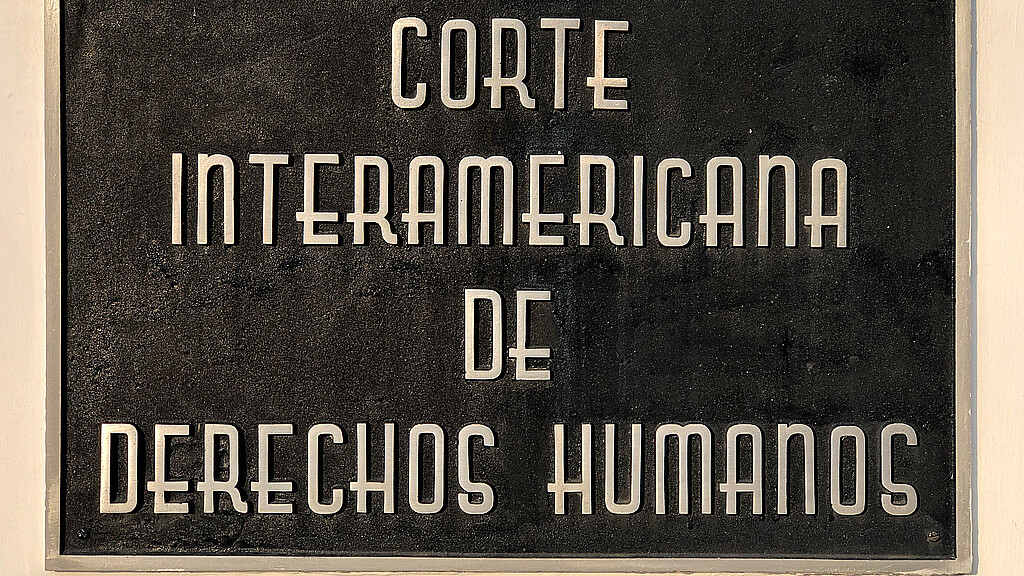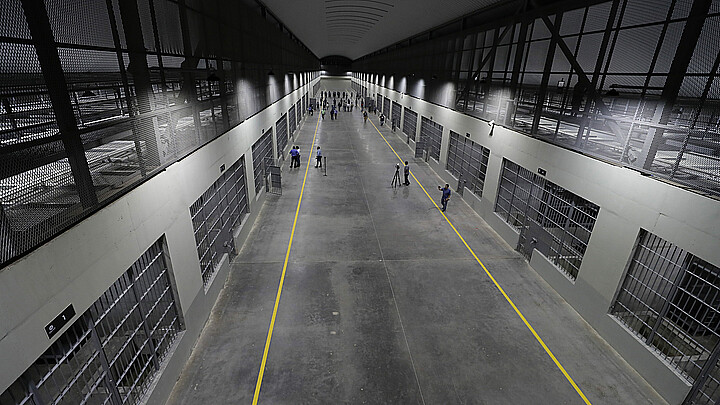Human Rights
Inter-American human rights court begins hearing of historic El Salvador abortion case
Doctors at the maternity hospital recommended terminating the pregnancy to not put Beatriz’s life at risk—she had been diagnosed with lupus at 19. However, in El Salvador, abortion is completely illegal regardless of the circumstances.

March 23, 2023 7:06am
Updated: March 23, 2023 9:18am
The Inter-American Court of Human Rights on Wednesday began hearing the historic case involving a Salvadoran woman who was denied an abortion despite having a high-risk pregnancy.
“This is the first time the Inter-American Court will discuss the consequences of the total criminalization of abortion,” said Cristina Quijano Carrasco, women’s rights researcher at Human Rights Watch.
The Inter-American Court of Human Rights (IACHR) is an international court based in San José in Costa Rica, formed by the Inter-American Commission on Human Rights (IACHS) and American Convention on Human Rights, a treaty adopted by members of the Organization of American States (OAS).
The Inter-American Court works with the IACHS to support human rights and civil liberties. It has jurisdiction within 25 of the 35 OAS member states, which make up most of Latin America. The court adjudicates claims of human rights violations by member states and issues advisory opinions on legal matters.
“Its ruling on El Salvador, which has some of the world’s strictest anti-abortion laws, would set a precedent in Latin America and the Caribbean when it comes to abortion if a women’s life is in danger or if a fetus cannot survive outside the womb.”
In February 2013, the woman, known only as Beatriz, was diagnosed with a high-risk pregnancy at 11 weeks after an ultrasound showed the fetus to be anencephalic, a congenital malformation with no prognosis of survival outside the womb.
A pregnancy with that condition can lead to several complications, including obstetrical hemorrhage.
Doctors at the maternity hospital recommended terminating the pregnancy to not put Beatriz’s life at risk—she had been diagnosed with lupus at 19. However, in El Salvador, abortion is completely illegal regardless of the circumstances.
Beatriz requested the termination of her pregnancy through a lengthy process that led her to the Supreme Court, which ultimately ruled that she could not get an abortion.
In April, the Inter-American Commission on Human Rights (IACHR) called on El Salvador to allow Beatriz to carry out “the necessary measures to implement the treatment.”
Ultimately, Beatriz had to get an emergency C-section on June 3, during her 26th week of pregnancy. The fetus died five hours later.
The IACHR sent Beatriz’s case to the Inter-American Court of Human Rights, claiming that El Salvador violated her right to life and health under the American Convention on Human Rights.
Experts believe the court’s ruling on the case could have far-reaching impacts on reproductive rights across Central America.
"The case will be the first where the high court could rule on the conventionality of the absolute prohibition of a pregnancy's voluntary interruption," said Julissa Mantilla, a commissioner for the Inter-American Commission on Human Rights (IACHR).








